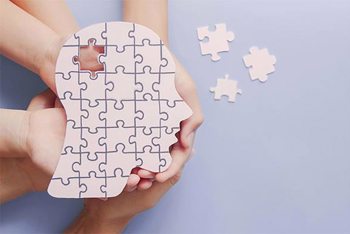Psychologists Online across Australia for counselling, testing and groups - Melbourne, Sydney, Brisbane, Adelaide, Hobart, Perth and Canberra

How can we help?
At Psychology Melbourne, we provide understanding, respectful support for autistic individuals of all ages. Whether you're seeking clarity through assessment, looking for strategies to navigate daily life, or simply wanting a safe space to explore your experiences, our psychologists work collaboratively with you focusing on your strengths, needs, and goals.
Psychological Testing
We start with psychological testing and assessment to identify the type of Autism you have. You will begin your assessment with an Autism Screener to identify whether you have a clear diagnosis of autism or are just showing some symptoms of autism. If your results indicate a full Autism Assessment is required, you will receive a reduction on the cost of the full assessment.
One-on-one counselling
After your tests are completed, we recommend you have a series of individual psychologist counselling sessions with one of our psychologists who has expertise in working with autism.
This will help you understand the differences in your brain functioning and recommend ways for you to manage the symptoms you are having difficulty with.
Group therapy
To complete your therapy, we offer an Adult Adult Autism Group to help you implement and practice new behavioural strategies with the support of an experienced autism psychologist.
The Adult Autism Group is an alternative effective support that includes working with others with similar challenges. You can do this on completion of your one-on-one sessions or as a stand-alone support.
Group work gives you valuable access to experienced autism psychologists at a reduced cost compared to individual counselling.
For more information on any of the above, please contact our Reception team on 1300 161 639 or email is at info@psychologymelbourne.com.au or use the chat box below.
What is the best support for Autism?
Autism support consists of multiple psychological approaches, including behavioural, developmental, social-relational, and occupational therapy.
The psychological approach can assist people with autism to cope with anxiety, depression, and other mental health issues that are often associated with autism. Cognitive Behaviour Therapy (CBT) is used to teach people with autism how thoughts, feelings and behaviors are all connected and how they can choose how to react in unusual ways.
The behavioral approach is also effective for treating symptoms of autism as it focuses on helping people change a behaviour by understanding the sequence of the behaviour, and how you can track what happens before and after each behaviour takes place.
The developmental approach is focused on improving specific skills, such as language skills or physical skills. Speech and Language therapy are highly recommended.
Social-relational support focuses on improving social skills and building emotional bonds. Psychology Melbourne's Adult Autism Group provides opportunities for people with autism to practice social skills in a structured, safe environment. They are led by an experienced psychologist for 6-8 people with similar issues.
Medication
There are no specific medications for the support of autism. Some symptoms of autism such as overly high energy levels, an inability to focus, or self-harming behavior, such as head banging, or hand biting can be helped by medication.
Medication can also help manage comorbid psychological conditions, such as anxiety or depression, sleep problems, stomach, or other gastrointestinal problems.
Psychologists are not able to prescribe psychiatric medication and if you are interested in going down this path, our psychologists can explain some of the benefits, risks, and the possible side-effects of medications to help you make your own decision.
Psychiatrists are renowned for their long waiting lists, however; we can recommend psychiatrists who give preference to our clients and will see you within 4-6 weeks (less than 2 months).
You may also choose to manage your autism without medication via Cognitive Behavioural Therapy and other behavioural techniques. Many people find this a longer-lasting solution.
Speak to our Reception team about our Autism Skills Group.
How does an Autism Assessment work?
Our autism assessment package includes a battery of autism screening tests as well as a full clinical history to provide you with a clear diagnosis (If applicable). The aim of the assessment is to explore an individual's developmental profile and determine whether they meet diagnostic criteria for autism.
The screening tests and other validated assessment tools are completed online by you over the three clinical consultations. You will also receive recommendations for future support, whether for medical, social-relational therapy or cognitive behavioural therapy.
Our psychologists will assess your strengths and any mental health issues that may affect your diagnosis, such as mood disorders, learning difficulties and medical conditions.
Your psychologist will go over your test results with you carefully to identify the best support options for you. Depending on the results of your screening tests, further testing may be required.
You will receive a comprehensive assessment report that you can show to your GP (General Practitioner), family members or your employer. The report may recommend behavioural therapy to help you manage your autism symptoms, such as individual or group psychological counselling. It may also recommend speaking to your GP or psychiatrist about psychiatric medication.
You can learn more about the autism assessment HERE.
Our assessment process is compliant with the National Guideline for the Assessment and Diagnosis of Autism.

Autism Screener
This brief screening provides an initial indication of traits that may be consistent with autism and can assist in determining whether a full diagnostic assessment may be appropriate.
Cost: $200

Adult Autism Test
A structured assessment using consultations and psychological testing to explore developmental history, behaviour, and traits, with a detailed report that may assist in understanding experiences and needs.
Cost: $1650

Autism Support and Life Planning Program
This program is designed to help autistic individuals to build on their strengths, develop practical skills, and work towards personal goals with clarity and confidence.
Cost: $600

Combined ADHD and Autism Assessment - Melbourne
This assessment provides a comprehensive evaluation for both ADHD and Autism. It may assist in clarifying whether you meet diagnostic criteria and in understanding aspects of attention, memory, and behaviour.
Cost: $2400

Child Autism Assessment
A comprehensive developmental assessment exploring behaviour, communication, and learning through consultations and testing, with a report that may assist parents and professionals in planning support strategies.
Cost: $2300
How does one-on-one Counselling Work?
One-on-one counselling provides people with a safe place to work through their personal or psychological problems, knowing that everything they say is confidential. It includes a series of 1-hour individual consultations with an experienced psychologist.
Our team of Autism psychologists are highly skilled in working with Autism and use a variety of supports, which you can read about below.
Individual counselling is conducted by an experienced autism psychologist, who will help you understand more deeply how your brain functions and develop ways for you to successfully manage your autistic symptoms. They will also recommend useful resources to help you with this.
The CBT (Cognitive Behavioral Therapy) approach is a highly recognised psychological support that includes psychoeducation and behavioural skills to assist people with autism. You will learn to understand how thoughts, feelings and behaviors are all connected.
Our team of psychologists are trained in working with autistic clients. They will teach you skills to manage your symptoms to help you live a more satisfying life. You will learn to build your confidence so that you can better manage your situation at home, socially and at work.
During your sessions, your psychologist may provide exercises for you to do and recommend various resources and apps to help you manage your symptoms.
For further information, contact our Reception team on 1300 161 639 or email us at info@psychologymelbourne.com.au or use the chat box on this website.
The Team of Autism Psychologists

MORE INFO
Francesco Poci
Melbourne CBD

MORE INFO
Dr Anna Mooney
Melbourne CBD

MORE INFO
Elly Alija
online only

MORE INFO
Graeme Miller
Melbourne CBD

MORE INFO
Magdalene Sng
online only

MORE INFO
Pamela Williams
Melbourne CBD

MORE INFO
Richard Weld-Blundell
Melbourne CBD
How does the Adult Autism Group work?
Our Adult Adult Autism Group provide opportunities for people with autism to learn many life skills, including social and emotional and behavioural skills in a structured, safe environment.
The group is held online and led by an experienced psychologist with autism training, who will teach you a variety of social and emotional skills. You will work with 6–8 people with autism–related issues weekly for 6 sessions.
Cognitive Behavioural Therapy (CBT) teaches skills in emotional regulation, mood management, self-esteem, focus and concentration, self-awareness, self-talk, and works well in combination with physical exercise and a healthy diet.
Group work is extremely rewarding and can provide benefits that individual therapy cannot. In groups, you can learn to apply what you have learnt in individual sessions in a safe environment.
You will also gain extra support from the group: listening and seeing how other people tackle problems and make positive changes can encourage you to try new strategies for facing your own concerns.
People often feel alone and like they are the only ones struggling with autism. It can be a huge relief to hear others discuss what you are going through.
Our Adult Autism Groups give you valuable access to experienced psychologists at an affordable cost.
What is Autism?
Autism is a neuro-developmental disorder which can develop as early as three years old, however, symptoms can improve over the lifetime. It can derive from a combination of genetic and environmental influences.
You may choose to seek a diagnosis for autism if:
- You have been diagnosed with a mental health condition or intellectual disability during childhood or adolescence but think that you may have autism
- You have struggled with feeling socially isolated and different
- Other family members have been diagnosed with autism and some of the characteristics of autism sound familiar to you
Autistic people have a wide variety of strengths, communications, social interactions, leisure and play activities. Many of the difficulties that they experience arise when individuals don’t have the respect, understanding and support they require. When these needs are met, autistic people can thrive in their environment.
Autistic people often have problems with social situations and can find it hard to relate to other people, struggle with eye contact and can be overwhelmed by bright lights, loud noises, and unfamiliar situations.
They may have diverse ways of learning, moving, or paying attention. Under stress, they may use restricted or repetitive behaviours such as clicking their fingers or rocking. They may also have unusual ways of learning, moving, or paying attention.
Other symptoms can include:
- not responding to their name
- not smiling when you smile at them
- getting terribly upset if they do not like a certain taste, smell, or sound
- not talking as much as others
Our psychologists consider many factors when forming a diagnosis, including the person’s strengths and capabilities.
How much does it cost?
1. Individual Counselling
We have a large team of male and female psychologists who provide in-person and online autism counselling. They are available six days a week, for sessions both before and after regular working hours, as well as, all day on Saturdays.
- Consultations with a clinical psychologist start from $275 and a Medicare rebate of $145.25 may apply for each session you attend, making an out-of-pocket fee of $129.75 per session.
- Consultations with a registered psychologist start from $230 and a Medicare rebate of $98.95 may apply for every session you attend, making an out-of-pocket fee of $131.05 per session.
- The fees for consultations differ between in-person and online sessions. There is an additional fee of $10 for appointments scheduled before 9 am and after 5 pm weekdays, as well as, for appointments throughout the day on Saturdays.
- Medicare rebates are available for 10 one-on-one counselling sessions per calendar year if you have a Mental Health Care Plan from your GP.
- To access funded services from a third party, such as Workcover, you must provide approved claim details 48 hours before your first session. If, for any reason, approval is not provided, you will be responsible for full payment, or appointments may be cancelled. A gap fee of $30 per session may apply.
- A reduced fee is considered on request for clients under financial hardship with a letter from your GP confirming your financial situation.
- Fees can be paid by EFTPOS, VISA, or MasterCard. Please note that we do not accept American Express or Diners Club.
- Bulk Billing is not available at our clinic.
- We support NDIS participants with self-managed or plan-managed funding. While we are not a registered NDIS provider, our services may be accessible under your NDIS plan. If you’re unsure about eligibility, check with your plan manager or NDIS coordinator.
For more information, please contact our Reception team on 1300 161 639 or email us at info@psychologymelbourne.com.au or use the chat box on this website.
2. Autism Groups
Groups are subject to different fee structures based on the practitioner leading the sessions, the number of sessions for the Group and your location eligibility for telehealth rebates. Groups are held for 4 to 6 sessions online at various times but usually in the evenings and is approximately $50 per session.
- Groups run by a clinical psychologist cost $510 and a Medicare rebate of $36.00 may apply for every session you attend, making an out-of-pocket fee of $294.00.
- Groups run by a registered psychologist cost $450 and a Medicare rebate of $24.65 may apply for every session you attend, making an out-of-pocket fee of $302.10.
Please note:
- Medicare rebates are available for 10 1-hour group sessions per year if you have a Mental Health Care Plan from your GP and are in a telehealth eligible area.
- After pay is available for the initial cost of the group and any rebates are sent to your nominated account after each session.
- Some private health funds offer refunds for one-on-one counselling sessions. Please contact your private health provider to find out more about your policy.
For more information, please contact our Reception team on 1300 161 639 or email us at info@psychologymelbourne.com.au or use the chat box on this website.
How do I make an appointment?
Counselling appointments
For individual counselling appointments you can book online, or call our Reception team on 1300 161 639 or email us at info@psychologymelbourne.com.au or use the chat box on this website.
Reception will find an appointment time that suits you best and will reserve 3 future appointments in the diary so that you can keep your place in your psychologist’s diary. Appointments after that will be made between you and your consultant.
We understand that changes to your appointments are sometimes necessary, but we urge you to notify us as soon as possible to avoid cancellation fees. You will be sent an SMS reminder four (4) days before your appointment.
For in-person appointments we have strict precautions in place at all our locations for your safety. If you are feeling unwell, have any symptoms of fever, or have tested positive for COVID-19, we ask you to use our online counselling services until you are well again.
Please bring your Mental Health Care Plan to your first session or email it to us at info@psychologymelbourne.com.au. Alternatively, you can ask your GP to fax this through to us on 03 9957 8122.
Group appointments
For group appointments you can book online, or call our Reception team on 1300 161 639 or email us at info@psychologymelbourne.com.au or use the chat box on this website.
We require prepayment of all groups prior to the start date. You can purchase the group on our website or call our Reception team for assistance on 1300 161 639 or email them info@psychologymelbourne.com.au or use the chat box on this website.
Once you have enrolled in the group, you will be sent several forms to complete before the group starts. If you have any questions about forms, please speak to our helpful Reception team. The forms are required to be completed 24 hours before the group starts.
You will need to join the online group 10 minutes before it starts to ensure there are no technology problems. Assistance on the night is only available for 10 minutes before and after the start time.
Alternatively, we can show you how to join on the day prior to the group starting.
If you have any technology problems, please check your audio and video are working properly as well as your Wi-Fi connection. Refresh your browser if you are still experiencing problems.





